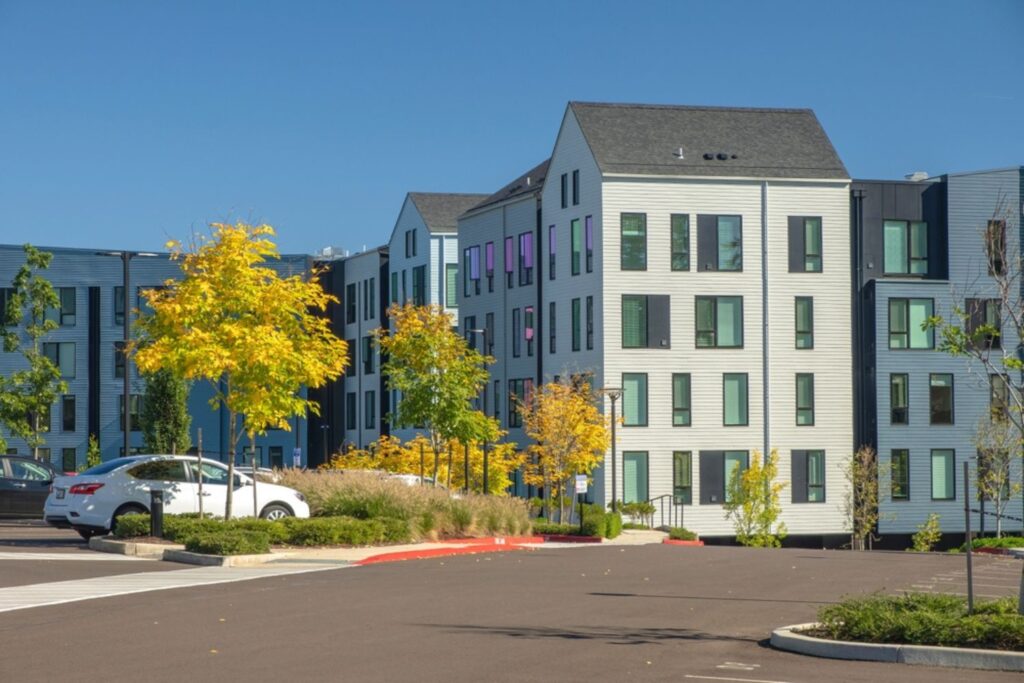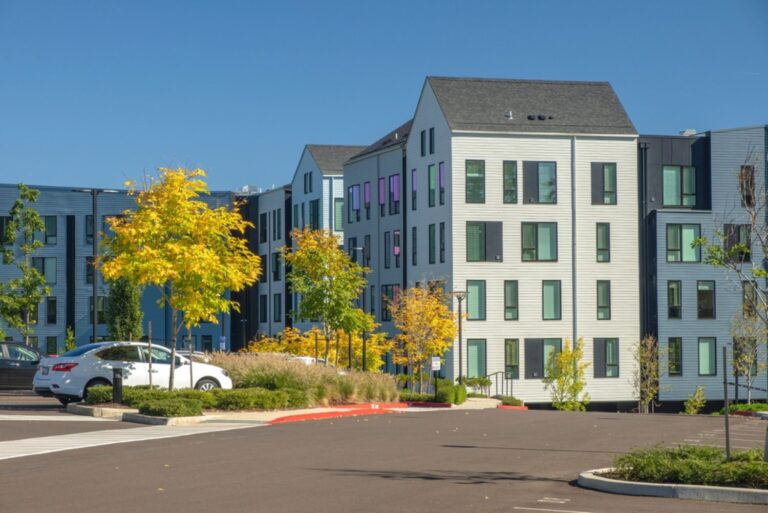If you’re considering becoming a foster parent but you rent your home or apartment, you might be wondering if your housing situation will prevent you from opening your doors to a child in need. It’s a common concern—and an understandable one. After all, when you don’t own your home, there are landlords to consider, lease agreements to navigate, and questions about whether renting somehow makes you “less qualified” to foster.
Here’s the good news: Yes, you can absolutely be a foster parent if you rent! Your rental status does not disqualify you from fostering in Oregon. Whether you live in an apartment, a duplex, or a single-family rental, what matters most is that you can provide a safe, stable, and loving environment for a child who needs one.
In this guide, we’ll walk you through everything you need to know about fostering as a renter in Oregon—from housing requirements and home inspections to working with your landlord and preparing your space. If you’ve been holding back from taking that first step because you’re unsure about your rental situation, this is for you.
The Short Answer: Renting Doesn’t Disqualify You
There is no rule in Oregon that says foster parents must own their homes. Foster care agencies, including Foster Plus partner agencies, welcome renters who meet the necessary safety and space requirements.
What agencies care about isn’t whether you rent or own—it’s whether your home is a safe, appropriate environment for a child. That means having the right space, meeting safety standards, and being able to commit to providing stability and care. Homeownership is simply not a prerequisite.
That said, there are a few considerations unique to renters that you’ll want to be aware of as you move through the foster parent certification process. Let’s break those down.
Housing Requirements for Foster Parents Who Rent
Space Requirements: Does Your Rental Need to Be a Certain Size?
One of the most important housing requirements—whether you rent or own—is that the child in your care must have their own designated bedroom space. This means a separate room that functions as a legal bedroom, not a shared space, converted closet, or makeshift area.
The good news? The type of rental you live in doesn’t matter. You can foster in:
- An apartment
- A duplex
- A townhome
- A single-family rental
- Any other rental arrangement
As long as you have a bedroom that can be dedicated solely to the foster child, you’re meeting this key requirement.
What Are Oregon’s Bedroom Requirements?
In the state of Oregon, a bedroom needs to meet certain criteria, such as:
- At least one unrestricted exit
- At least one secondary means of exit or rescue
- Functioning smoke alarms
- Unrestricted, direct access at all times to hallways, corridors, living rooms, or other common areas
- Quick-release mechanisms on all barred windows
These are standard requirements that apply to all foster homes, not just rentals. When your home is inspected, the certifying agency will verify that the bedroom meets these standards.
We have an entire blog post on Oregon foster care bedroom requirements, which you can read here.
Safety Standards: What Your Rental Must Have
Home safety is non-negotiable when it comes to fostering, and the standards are the same whether you rent or own. During the certification process, your home will be inspected to ensure it meets Oregon’s safety requirements. Here are just some of the things agencies will be looking for:
Emergency Preparedness
Functioning and properly located safety equipment is a must, as are accessible emergency exits. This includes:
- Smoke detectors: At least one on each floor and in each bedroom where a child sleeps.
- Carbon monoxide alarms: Also one on each floor and within 15 feet of a child’s bedroom.
- Dual means of exit: Your home must have at least two ways to exit in case of an emergency (and they must be able to be opened by your foster child).
Secure Storage Requirements
Potentially dangerous items must be properly secured. This includes:
- Weapons: Guns should be kept in locked storage with ammunition stored separately. Other hunting or sporting equipment (like bows) should also be securely stored and inaccessible to your foster child.
- Medications: All medications should be locked and refrigerated when required.
- Substances: Alcohol and marijuana products should be kept inaccessible to the child.
- Sharps: Items like knives, razors, and needles must be safely stored.
These standards exist to protect the children in your care, and they’re designed to be achievable in any type of home.
Cleanliness and Livability
Your home must be clean and provide a safe, healthy environment. But here’s something important to understand: agencies aren’t expecting perfection.
The home inspection is conducted through the lens of child safety, not interior design. If your rental needs some basic repairs or has cosmetic issues—maybe the paint is a little worn, or the carpet has seen better days—those things are unlikely to be barriers to certification. The agency will discuss any concerns with you, but minor cosmetic issues typically won’t prevent you from moving forward.
However, if there are serious structural concerns, significant hygiene issues, or the home cannot meet the required safety standards, those may need to be addressed before you can be certified. In most cases, agencies will work with you to identify solutions and help you get your home ready.
For more information on the home inspection process, read this blog post about what to expect and how to prepare.
Working with Your Landlord: What You Need to Know
Here’s where things can feel a little more complicated for renters: you’ll need to make sure fostering is allowed under your lease agreement.
Do You Need Landlord Permission?
The short answer is: it depends on your lease. Foster parents who rent are responsible for understanding the terms of their rental agreement and working within the parameters set by their landlord or property management company.
Some leases have occupancy limits or restrictions on who can live in the unit. Others may require written permission before adding additional household members. It’s important to review your lease carefully and, if necessary, have a conversation with your landlord before you begin the foster parent certification process.
How to Approach the Conversation with Your Landlord
Talking to your landlord about fostering can feel intimidating, but it doesn’t have to be. Here are a few tips:
Be upfront and honest. Share your plans to become a foster parent early in the process. Explain what fostering involves and how it will work within your rental situation. Transparency helps build trust and can prevent misunderstandings down the road.
Know your lease. Before you approach your landlord, review your rental agreement so you understand what’s allowed and what might require permission. This shows that you’re taking the matter seriously and are committed to following the rules.
Provide context. Some landlords may not be familiar with foster care. Let them know that foster children are not a risk to the property and that you’ll be held to the same standards of care and responsibility as any other tenant. You might also mention that you’re working with a certified agency and that your home will be inspected for safety.
Be prepared for questions. Your landlord may want to know how many children you plan to foster, how long placements typically last, or whether there are any liability concerns. Answer their questions honestly and offer to provide additional information if needed.
Get it in writing. If your landlord agrees to let you foster, ask for written permission or an amendment to your lease. This protects both you and your landlord and provides documentation if any questions arise later.
What If Your Landlord Says No?
Unfortunately, some landlords may not be supportive of fostering. If your landlord refuses to give permission and your lease prohibits additional occupants, you may need to explore other options—such as finding a new rental that allows fostering or waiting until your lease is up for renewal.
If welcoming a foster kid into your home full-time isn’t an option with your current housing situation, you can explore becoming a relief parent, which involves providing care for foster kids on a temporary basis—just a day or two at a time. You may want to double check your lease to ensure that level of care is allowed. And if not, there are also plenty of opportunities to volunteer with one of our partner agencies in your area.
Renters Insurance: An Additional Requirement
One thing that’s specific to renters is the requirement for renters insurance. As a foster parent who rents, you’ll need to have an active renters insurance policy in place.
Renters insurance is relatively affordable and provides important protections for your belongings and liability coverage in case of accidents or damages. Make sure your policy is up to date and that you can provide proof of coverage when requested during the certification process.
Taking the First Step
If you’re still on the fence about whether fostering is possible in your rental situation, here’s the best advice we can give you: take the first step.
You won’t know whether your rental will work until you start asking questions and gathering information. Reach out to Foster Plus or one of our partner agencies to have a conversation about your specific situation. They can answer your questions, walk you through the requirements, and help you determine what’s possible.
Fostering is about so much more than the type of home you live in. It’s about your willingness to open your heart and your life to a child who needs stability, safety, and love. If you have that to offer—and you meet the basic safety and space requirements—then you have what it takes.
Ready to learn more? Contact Foster Plus today to start a conversation about becoming a foster parent. Whether you rent or own, there’s a child out there who needs exactly what you have to offer.
You can also attend one of our upcoming information sessions to ask questions and get a better sense of what the foster care journey looks like.
Frequently Asked Questions
Can you be a foster parent if you rent an apartment?
Yes! You can foster in an apartment as long as it meets the required safety standards and you have a separate, legal bedroom for the child. The type of rental doesn’t matter—apartments, duplexes, townhomes, and single-family rentals are all acceptable.
Do I need my landlord’s permission to become a foster parent?
It depends on your lease agreement. You’ll need to review your rental contract to see if there are any occupancy restrictions or requirements for adding household members. If permission is required, it’s best to have an upfront conversation with your landlord and get approval in writing.
What if my landlord won’t let me foster?
If your landlord refuses and your lease doesn’t allow for additional occupants, you may need to find a different rental that permits fostering. While this can be disappointing, it doesn’t mean you can’t become a foster parent—it just means you may need to adjust your housing situation first.
Do I need renters insurance to foster?
Yes. Foster parents who rent are required to have an active renters insurance policy. This is typically an affordable monthly expense and provides important liability coverage.
What safety features does my rental need to have?
Your rental must have working smoke detectors and carbon monoxide alarms, dual means of exit in case of emergency, and secure storage for firearms, medications, chemicals, and sharps. Depending on the age of the child, additional childproofing may be required.
What happens during the home inspection?
A representative from the certifying agency will visit your home to ensure it meets all safety and space requirements. They’ll check for working smoke and carbon monoxide detectors, safe sleeping areas, secure storage of hazardous items, and general cleanliness. The inspection is conducted through the lens of child safety, not perfection.
Will cosmetic issues in my rental disqualify me?
Minor cosmetic issues—like worn paint or older carpet—are unlikely to prevent you from being certified. Agencies understand that rentals vary in condition. However, serious structural or hygiene concerns may need to be addressed before certification.
What if I need to move while I’m fostering?
If you move to a new rental, you’ll need to notify your certifying agency and have your new home inspected to ensure it meets safety standards. As long as the new rental is appropriate, your certification can continue.
Can I foster if I have roommates?
It’s possible to foster with roommates, but all adults living in the home will need to complete background checks and be part of the certification process. This is to ensure the safety of the child.





